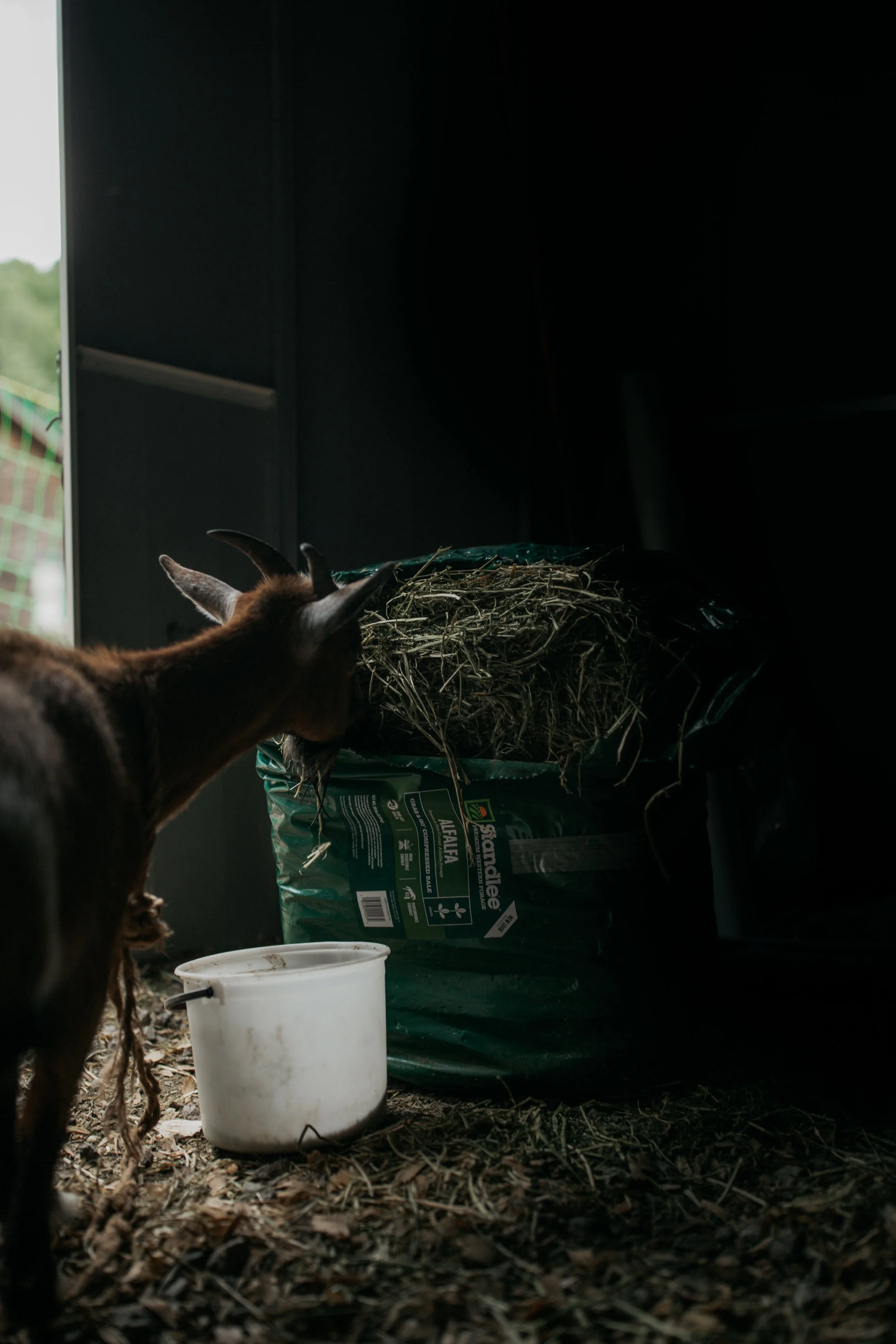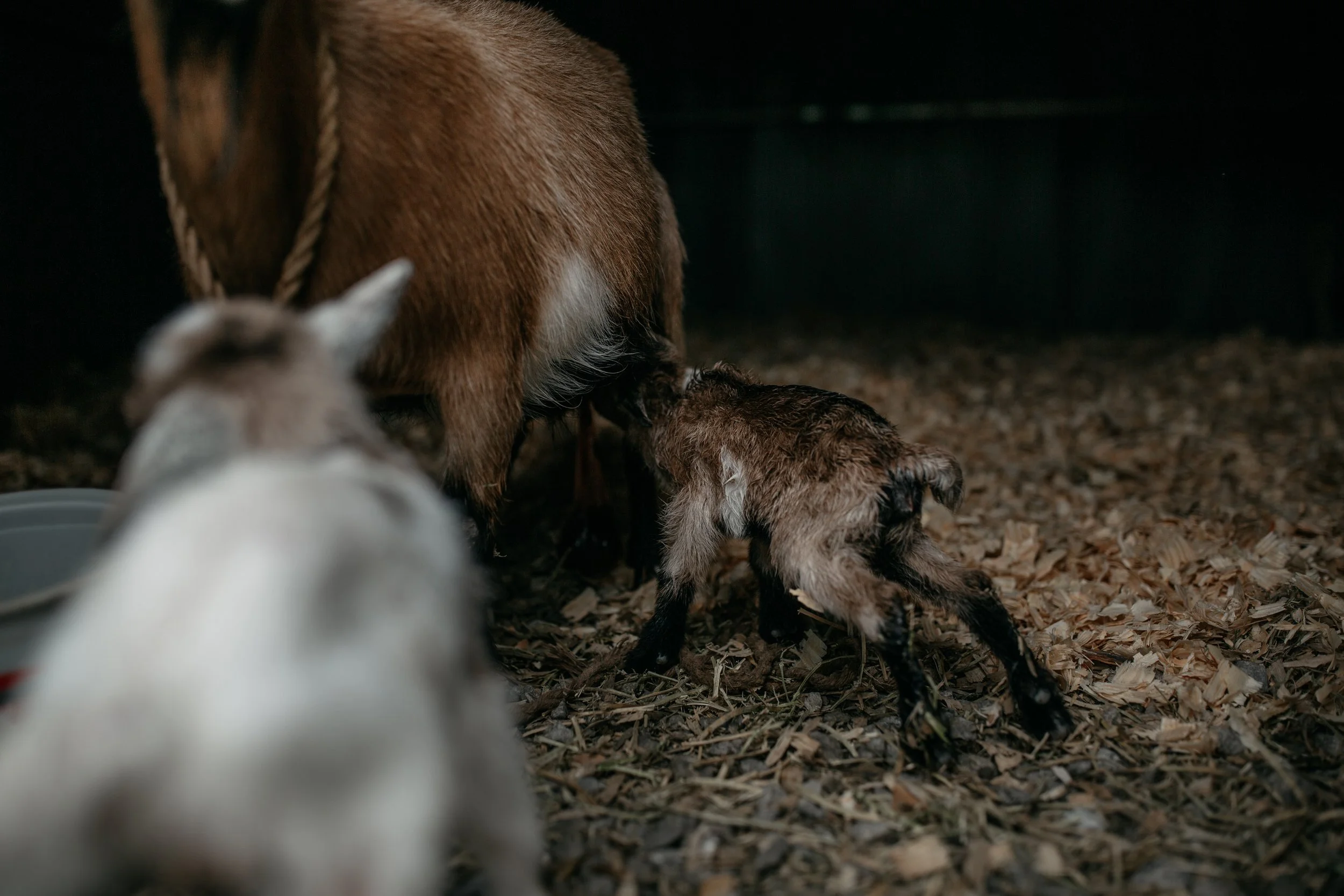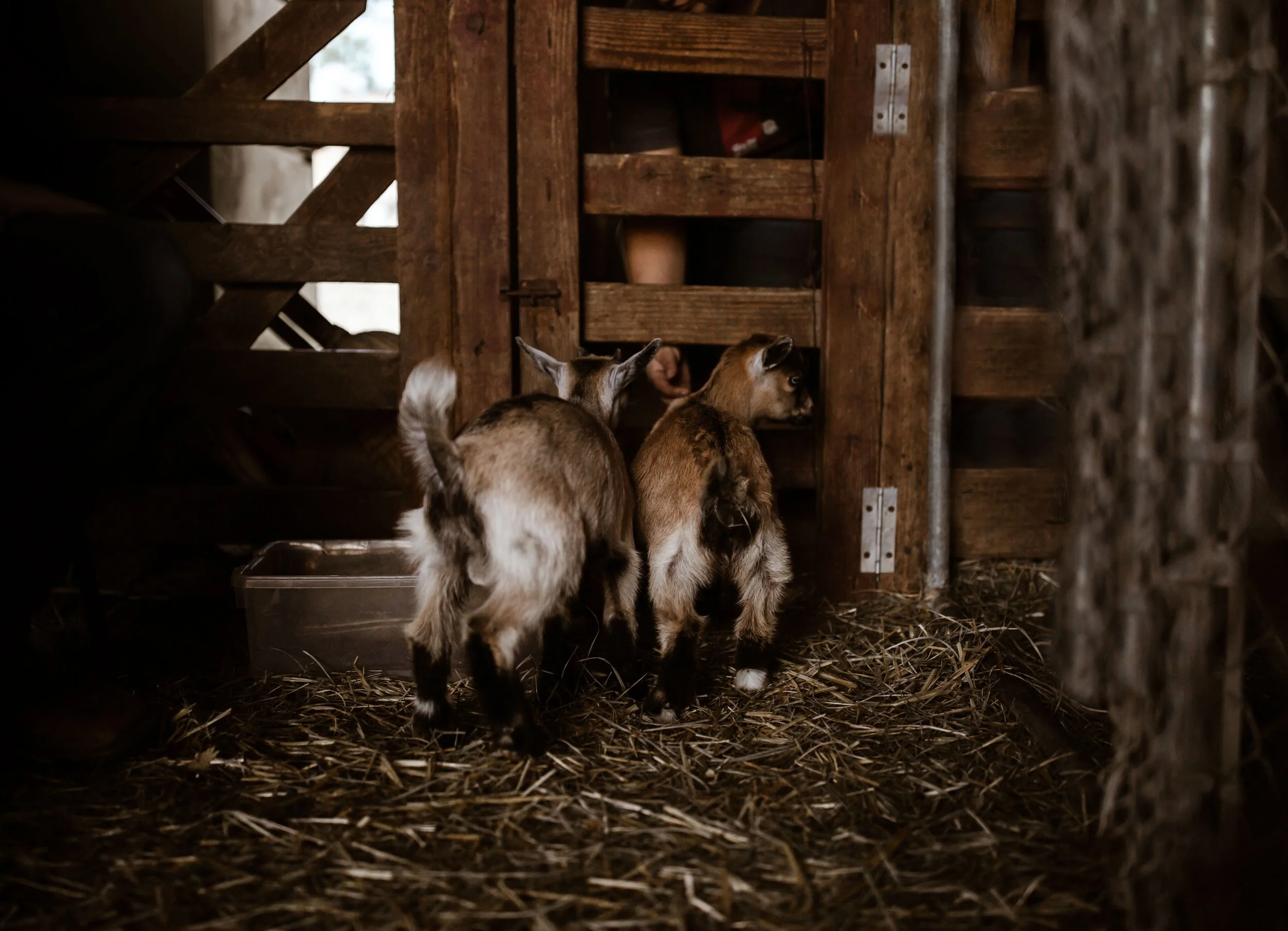After Birth: Caring for your goats
There are many opinions on what the right steps of aftercare are for does who have given birth. Like human women, I believe each after care system to be personal to each goat and the way they carried throughout their pregnancy. I would use the term “lucky” in my fortune with easy and quick births along with excellent mothers, however, I attribute it more to very intentional diet, movement, environment, and natural selection of our animals. As most of you who follow me know, I feel very strongly and passionately about keeping to an ancestral way of each animal’s diet. We use no allergen grains such as corn and soy, we stay away from vegetable and seed oils and give grain known to be found in wild diets such as oat, barley, millet etc. and spice it up with molasses, but these are on a treat occasion and for rationed for pregnant does for extra calories and carbohydrates for organ and energy function. We do love to feed fresh and dried herbs that are sweet like basil a s well as anti-parasitics like oregano, wormwood, black walnut etc.
Why I am mentioning this is because, in order to have a simple aftercare routine, I believe the post natal care and every term to be vastly more important in order to avoid intensive aftercare protocols.
The after care of my does looks very different to others. Many long time goat breeders have experienced tragic birth complications where the doe’s life was compromised or even lost. Perhaps they even had to enlist emergency supplies to bring her back from the brink of death. I don’t sneer or wish not to have these experiences- I feel that moving through the complications help us help others. And so, I will give you here today good practices should everything seem to have gone well and pass on the good advice of others on what to have on hand should they not go so well.
O N H A N D I T E M S
I typically have all of these items. The usage will depend on the situation, your preference and the season in which kids are born.
Fresh clean towels
Molasses
Scissors (if you want to cut umbilical)
Gloves if you are squeemish
Probiotics
Heat lamp
Iodine (this is used if babies came early and environment is not clean and fresh. It is used to spray onto the navel to dry up the cord and prevent bacteria from entering through the cord)
A F T E R C A R E R O U T I N E | D O E S + K I D S
I do recommend at the very least to find a good veterinarian of farm animals that you feel comfortable with incase of any emergencies.
I bring 2 buckets of water. One is fresh clean water with probiotics and the other is fresh clean water, warmed, with about 1/2 cup of molasses poured and stirred. My buckets are usually 5gal. The molasses and sugars will help her with energy and help her to consume more water to replenish what was lost and aid in the production of milk
I put together a mix of grain feed for her. Oats, barley, millet, herbs such as dill weed, chamomile etc. This will help with energy production and her organs which carbohydrates are used for as well as soothing the GI tract and keeping the rumen activated.
I leave a bale of alfalfa in her stall at all times for free choice as she will not feel comfortable to roam and free graze. Make sure the alfalfa is off the ground and in a feeder or on top of a pallet. Goats are not grazers and are more susceptible to parasites from eating off the floor.
I stay present for at least 30-45 minutes and upward if needed to see if kids are latching and drinking properly. Not all kids get the hang of latching and may need some help. More than that, you may notice some kids latch but aren’t drinking, simply gumming the teat. This maybe due to the udders being so engorged, the teat is too swollen for a good latch or the let down of milk is too powerful for the kids. At this point, take your doe and milk her until the teat is in a soft state. Put the kid on and watch a bit longer. Before babies were born I do watch for the udder to be at its biggest. At this time, I will express colostrum into a few syringes and store it in the back of the freezer for when kids are born. I will shoot the colostrum into their mouth when I see that they are standing/moving and searching for the teat.
Does often end up with parasites during pregnancy. I rarely have this issue as a part of their grain regimen includes all of the herbs known to keep parasites away however feel free to give it to them after birth. I do not recommend chemical dewormer unless absolutely necessary as it has not been tested on lactating does and you’ll have to discard the milk. For newborn kids around 4-5 days of age you can begin deworming them herbaly as well. You can either purchase the organic dried herbs yourself and calculate the dosage : Cayenne pepper fruit, Cinnamon bark, Clove bud, Ginger root, Mullein leaf, Slippery Elm bark, Turmeric root.
or you can purchase this blend by Firmeadows which I do love called GI soother.Many producers and breeder of goats give vaccines after day four against a condition known as CTD or Clostridium. I do not vaccinate my goats. This neurological condition known to sheep and goat is primarily contracted by goats knows to consume vast amounts of milk biproduct and processed grain. “Overgrowth of Clostridium perfringens type D in the intestine of sheep and goats resulting in enterotoxemia are more likely to occur during the following conditions: Excessive consumption of milk or feed with high concentrations of grain.” -University Of Georgia Veterinary Medicine
Since I source my grain organic whole, only use on a irregular basis or rationed I have no need to worry
Somethings that you could have on hand besides the number to a vet would be some known anti-biotics.








